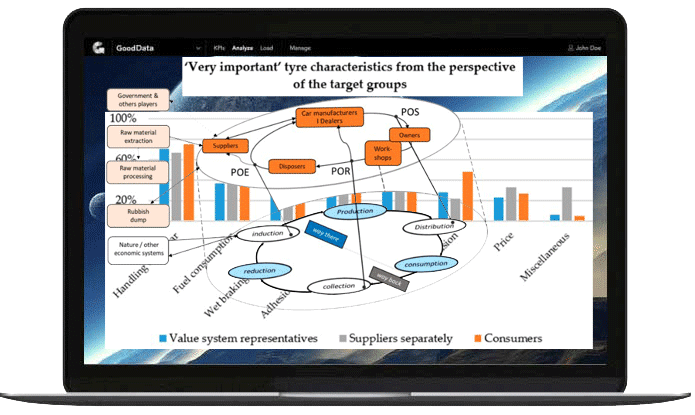BI Tools for Automotive Industry: Market Trends

Business Intelligence (BI) tools have become indispensable in the automotive industry, providing valuable insights and aiding decision-making. Here are some of the key market trends and applications of BI tools in the automotive sector:
1. Predictive Maintenance:
- BI tools in the automotive industry are increasingly used for predictive maintenance. They analyze sensor data from vehicles and machinery to predict when maintenance is required, reducing downtime and costly repairs.
2. Supply Chain Optimization:
- BI tools help automotive manufacturers optimize their supply chains by providing real-time data on inventory levels, production rates, and demand forecasts. This leads to more efficient operations and cost savings.
3. Quality Control:
- BI analytics are employed for quality control and defect detection. By analyzing production data, manufacturers can identify patterns of defects and take corrective actions swiftly.
4. Customer Analytics:
- BI tools analyze customer data to gain insights into preferences, buying behavior, and satisfaction levels. This information helps automakers tailor marketing campaigns and product offerings to meet customer needs.
5. Warranty Analysis:
- BI tools assist in warranty analysis by tracking warranty claims and identifying recurring issues. This helps manufacturers improve product quality and reduce warranty costs.
6. Vehicle Telematics:
- The integration of BI tools with vehicle telematics systems provides real-time insights into vehicle performance, driver behavior, and fuel efficiency. Fleet managers use this data to optimize routes, reduce fuel consumption, and enhance safety.
7. Sales and Inventory Forecasting:
- BI tools analyze historical sales data and market trends to improve forecasting accuracy. Automakers can adjust production schedules and inventory levels accordingly, minimizing overproduction or shortages.
8. Regulatory Compliance:
- BI tools assist in monitoring and ensuring compliance with automotive industry regulations and emissions standards. They help track and report data to meet regulatory requirements.
9. Market Intelligence:
- Automotive companies use BI tools for market intelligence, monitoring competitor activities, consumer sentiment, and emerging trends. This information guides strategic decisions and product development.
10. Sustainability and Green Initiatives: – BI tools help automotive manufacturers measure and reduce their environmental footprint by tracking energy consumption, emissions, and waste generation.
11. Connected Car Data Analysis: – With the rise of connected cars, BI tools are used to analyze the vast amount of data generated by vehicles. This data includes diagnostics, driver behavior, and real-time traffic information, which can be leveraged for various purposes, including improving vehicle safety and enhancing the driving experience.
12. Cybersecurity Monitoring: – As vehicles become more connected, BI tools are employed to monitor and analyze cybersecurity threats to protect connected vehicles from hacking and data breaches.
13. Aftermarket Services: – BI tools support aftermarket services by analyzing data related to parts availability, service requests, and customer inquiries. This helps in optimizing inventory and service scheduling.
BI tools in the automotive industry
In the automotive industry, BI tools are evolving rapidly to meet the increasing demand for data-driven insights, efficiency improvements, and innovation. As technology continues to advance, these tools will play a vital role in helping automotive companies stay competitive, adapt to changing market dynamics, and meet the evolving needs of consumers and regulators.